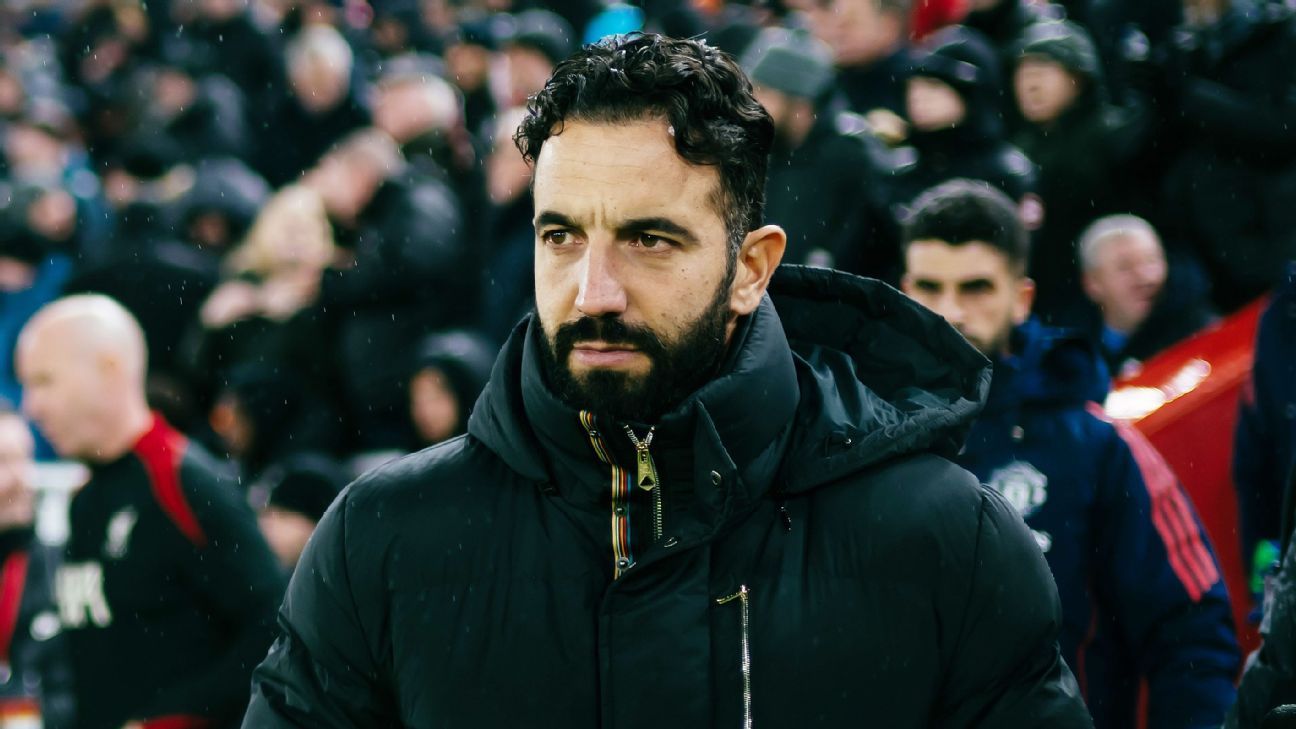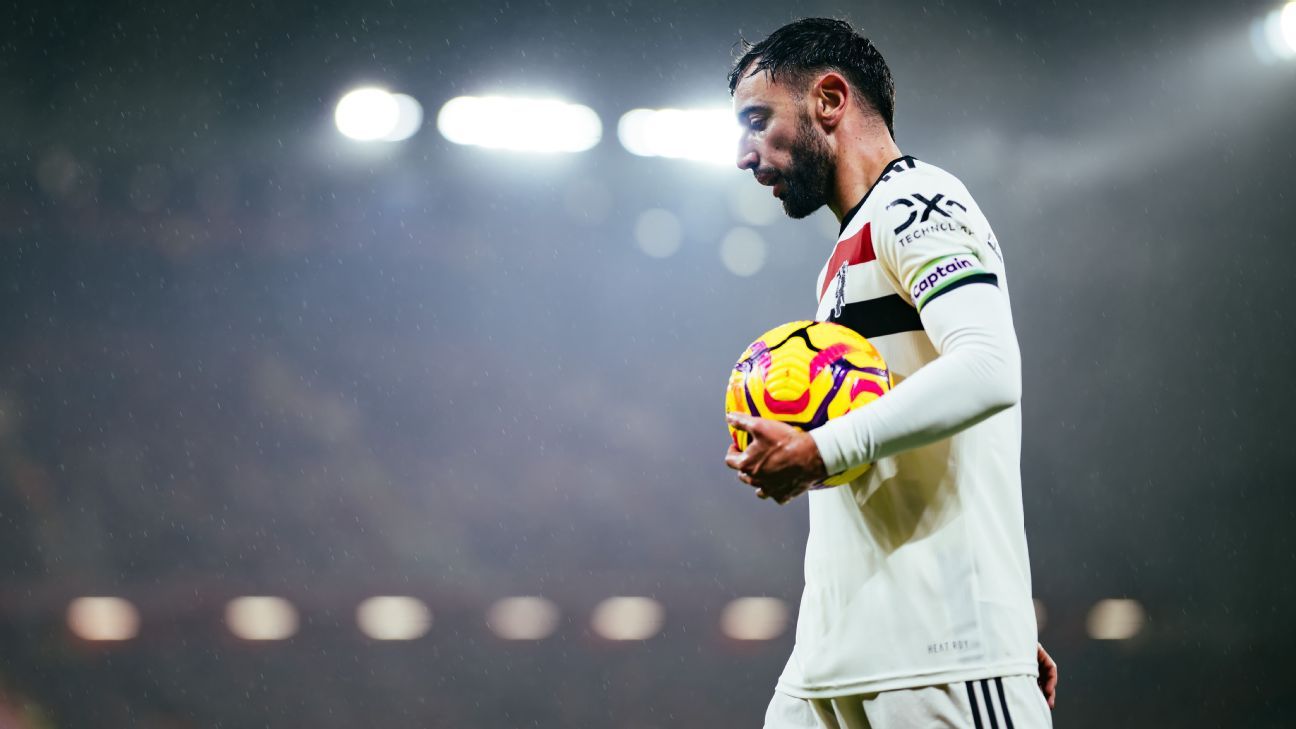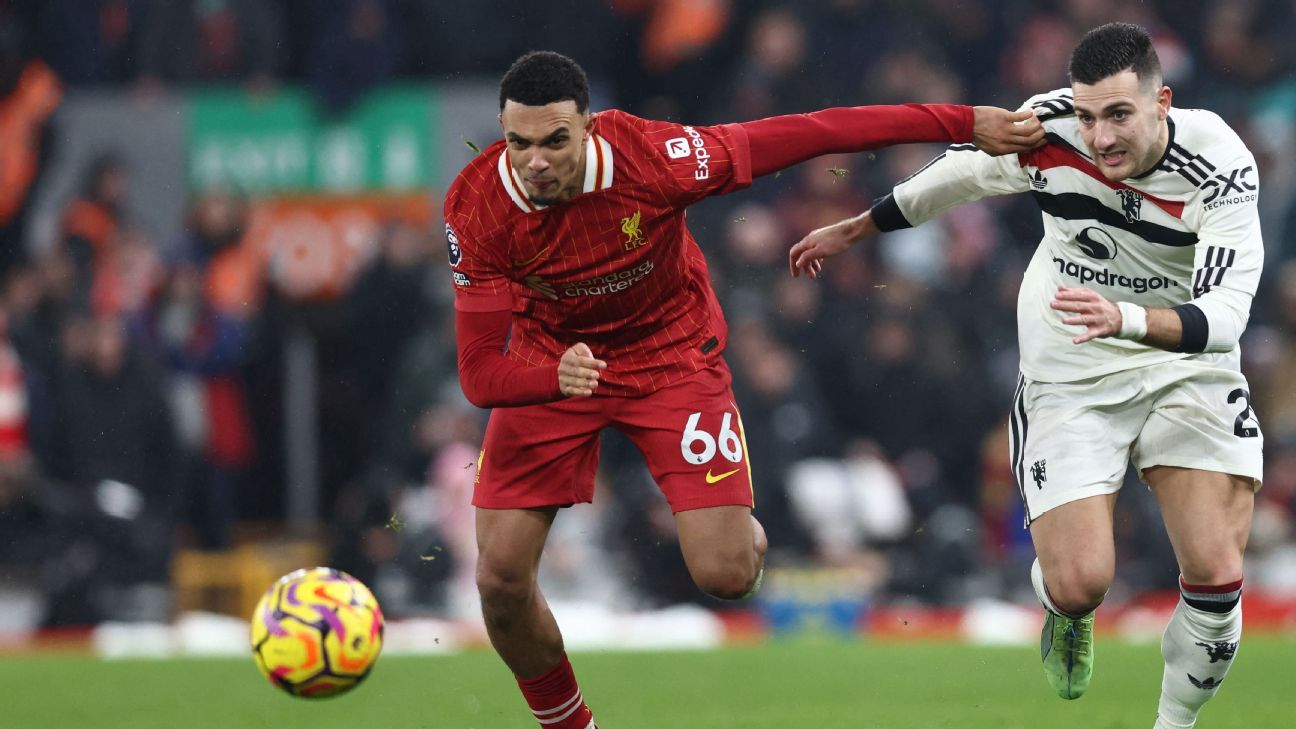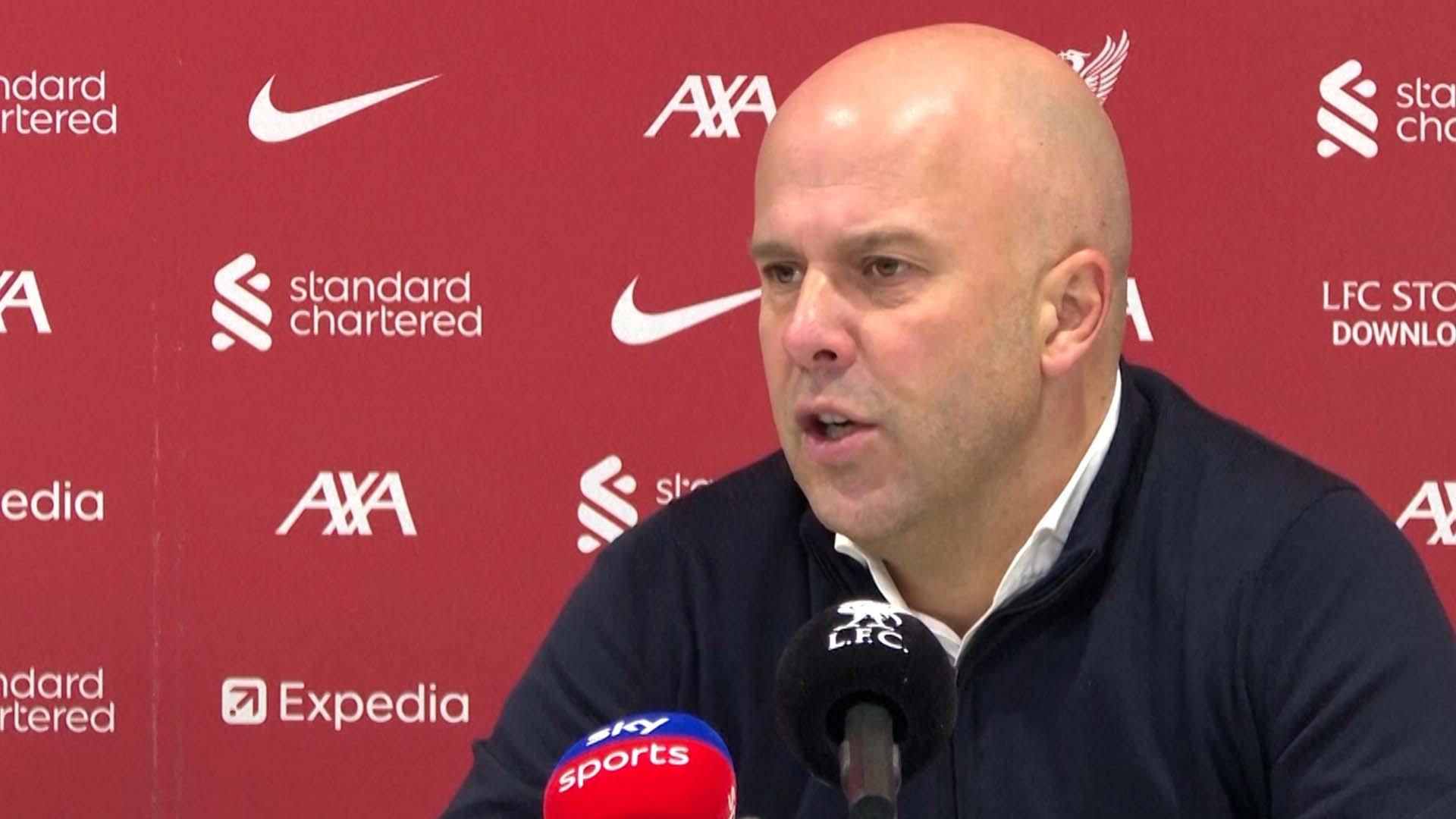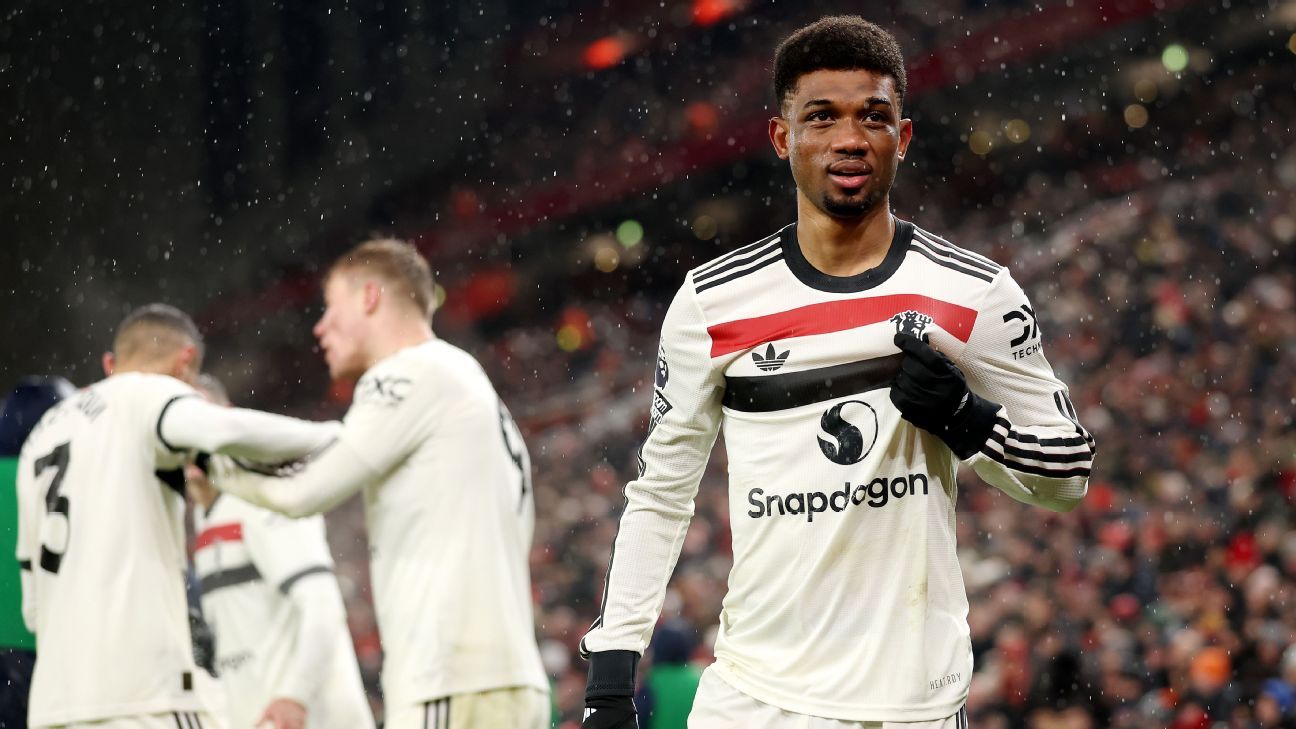
Sid Lowe, Spain writerOct 21, 2023, 04:29 PM
Liam Brady was in Bilbao, Spain, last week. So was Ivano Bonetti. And Thomas N'Kono. There to greet them were Ernesto Valverde, Oscar De Marcos and Jose Angel Iribar, the man they called "the willow," the most iconic goalkeeper in Spanish football history, whose black shirt was worn by every single keeper in the country on the weekend he turned 80.
Martin Bengtsson came, too. Ainhoa Tirapu was there; the entire Athletic Club women's team were. The second team, too. Miodrag Belodedici and Allan Cockram came with his team: Special K and Freddie, Woody, Charlie and the rest.
You will have heard of some of them; you will not have heard of some of them, not yet at least. And that's the way it is supposed to be. They have stories to tell, something shared and something to share: lives and football.
- Stream on ESPN+: LaLiga, Bundesliga, more (U.S.)
There was a moment at the start of the week when Valverde, former manager at Barcelona and the coach of Athletic Club, turned to N'Kono, Cameroon's goalkeeper at three consecutive World Cups, and suggested that they surely must be the only pair who lost two UEFA Cup finals on penalties -- as players and coaches for Espanyol, in 1988 and 2007. Brady also lost a UEFA Cup final. He won two Serie A titles in a row too, the No. 10 at Juventus, no less. Four years after Brady, Bonetti won the same title at the same club. There was another with Sampdoria, too.
It is hard to imagine anywhere else that could bring them together like this, with this warmth, this intimacy and authenticity. It is impossible to imagine anywhere else that could bring the rest of them as well.
— Athletic Club (@AthleticClub) October 20, 2023Belodedici became the first player to play in and win two European Cup finals with two different clubs: Steaua Bucharest in 1986 and Red Star Belgrade in 1991. He had defected from Romania while it was still under Nicolae Ceausescu's control in 1988. Bengtsson, meanwhile, was a Swedish midfielder who joined Inter Milan in 2003, but left soon after suffering from depression.
As for Cockram, he played twice for Tottenham Hotspur, alongside Ray Clemence, Glenn Hoddle and Steve Archibald. He had represented England at youth level but his senior career was played out mostly in the lower leagues. Loved at Brentford, he drove a taxi after he retired playing and felt a little lost. Purpose was found in one of his passengers, a kid called Phil with whom he played in the park and who passed away, and in coaching a team called the Mighty Penguins. All of the players are kids; they also all have Down's syndrome. They joined him in Bilbao last week.
Their story, all of their stories, were told at the Thinking Football film festival. (Which is a good reason not to reveal too much of them. Here's the catalogue, go watch as many of them as you can). Organised by the foundation at Athletic Club, 12 films were shown over seven days, including Jonny Owens' "I Believe in Miracles" and Virginie Verrier's moving story of Marinette Pichon, pioneer and player for France. All of them followed on stage by discussions with players, directors, and protagonists. This is the 11th year, over 100 films screened.
Verrier was in Bilbao, the story she tells of a figure she called "immense" more present, more meaningful than ever, the auditorium packed. When the credits rolled on "La Bella Stagione," ostensibly the story of Sampdoria's league title win but as much a tale of friendship between Roberto Mancini and the late, beloved Gianluca Vialli, there was a feeling, a sentiment, a something in the room that was palpable; when "Green Lions" by British director Billy Dosanjh closed, the Cameroon team from 1990 meeting again and marking the premature passing of their teammates, a single gaze expressing a million emotions, it was hard to hold back the tears.
After director Greg Cruttwell's film "In the Middle," on referees, was shown, he noted: "All of them are human beings and most of them do it because they love the game."
And there it was, summed up. All of it.
There is something about Athletic. This is a club with a unique policy -- one that plays only with footballers who have been formed in the Basque Country -- and a unique sense of self, its identity. No club has a greater feel for or celebration of its history or tradition, nor stands so squarely against the tide. This is a club whose stadium is known -- not just here, but everywhere in Spain -- as the Cathedral, and there is something in that, a sense of reverence, community, liturgy. A place where when a club comes for the first time, the captain lays flowers at the bust of their historic striker, Pichichi. An institution that hands out an award each year to a One Club Man and a One Club Woman, celebrating those who showed loyalty.
And yet this is not insular, nor anachronistic. Instead, it brings with it a universality too, a connection with everyone, with the game itself and the people who make it up -- at every level. An understanding, an awareness that there is something else, beyond winning, while also being fiercely competitive. The film festival is part of that and there is a literary festival, too. Culture and sport go hand in hand. The films they choose are not just those that depict the elite, the most famous footballers -- although those are there -- but that reveal the humanity, which touches you, move you.
No one else does this. Somehow, it feels like no one else could do this; not quite like this, not with the same affection, the same meaning, the same reach. At the opening night, every coach from Athletic's youth system was there for the screening of "Tigrar," about Martin Bentsson. Five hundred kids from the academy joined them. Mikel Vesga and Gorka Iraizoz came, not through obligation but interest, as players so often do. The Mighty Penguins did not just come to see their film -- and just try to watch it without smiling or crying -- they came and played at Lezama, Athletic's historic, iconic training ground against their genuine team, made of up players with Down's syndrome. When they landed at the airport, Athletic's bus was waiting for them. They were the stars.
As Cockram put it, smiling: "Everyone's waving at us ... but maybe they think we're the first team."
Directors and protagonists came. By the time they went, they were different. "What I feel is pride and happiness," Cockram said. "And life is happiness." To speak to Dosanjh was to hear a man entirely enamoured with what he had found and that was a recurring theme.
"From now on, you have us as Athletic fans," Bonetti insisted. Brady stood to embrace his audience, then pulled out a piece of paper, words of thanks written and delivered in Basque. There is, he said, nowhere like this. I am, he insisted, "one of you: an Irish lion." He was off to the shop to buy five little Athletic shirts for his grandchildren.
"I think all the players and filmmakers who have attended the event over the years have been struck by a film festival celebrating the beauty of football," said Sean Casey, director of "Liam Brady: An Irishman Abroad," a film that if it can be defined in a single word might be "warmth."
"You feel at home there; it's not contrived or forced ... it's a special place. When Galder, the director of the foundation, and his team look after you, you're made to feel like a genuine guest. And as someone who works in football I can tell you that's rarely the case," Casey said.
"If you're a football fan, you know that Athletic are unique, you know about its Basque policy and a sustained success that is even more incredible in today's game, where all their opponents have players from every corner of the globe. But it's not until you spend time in the city that you realise what a football place it is. The pride is so palpable. Attending the film festival just reinforced to me what football means."
What it means is all this, and all of them.
 (1).png)
 1 year ago
26
1 year ago
26

